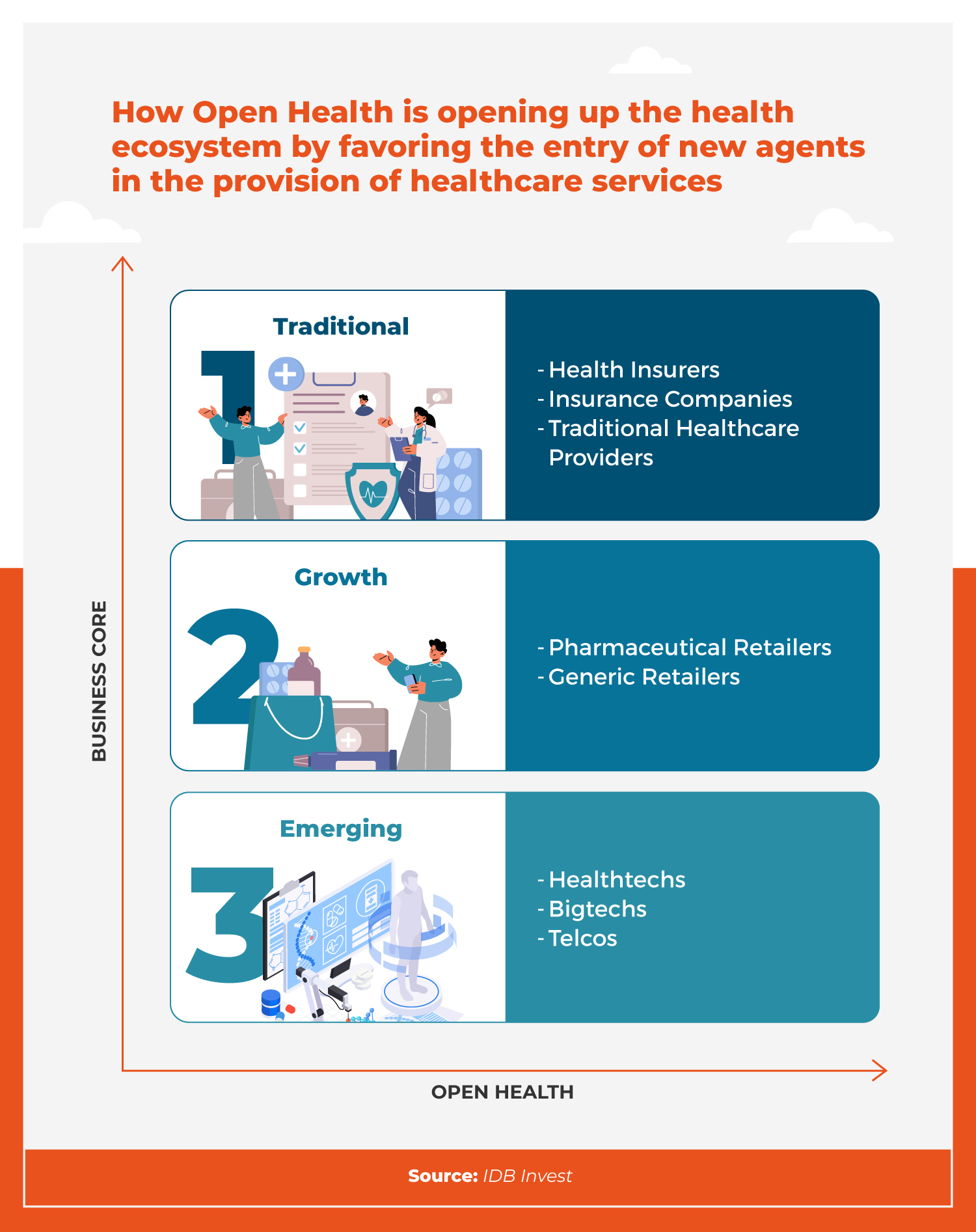Digitalization for Inclusive, Efficient and Fair Healthcare

Good health promotes well-being, human development, and the progress of individuals and societies. Vital to ensure growth and productivity, it is also one of the most relevant economic sectors globally and regionally.
The effects of the COVID 19 pandemic on healthcare systems profoundly affected the healthcare industry. The challenge of accelerating digitalization and the impact of new technologies to optimize systems or leverage healthcare data has put an additional strain on the sector.
BID Invest and NTT Data have conducted a series of research studies to provide findings, insights and recommendations on how the digital revolution is transforming several industries.
As part of that series, the study "How New Technologies Are Transforming Health Industry in Latin America and the Caribbean" shows that digital solutions have revolutionized processes, improving healthcare access, quality and management efficiency.
Data analytics is key to responding to one of the biggest challenges in Latin America and the Caribbean: preventing chronic diseases and promoting healthy habits.
You may also be interested in
- Climate Change is Also a Health Issue
- Is it possible to achieve more health per dollar spent? Potential gains by improving health spending efficiency
This technology can reduce the incidence of chronic diseases, making high-risk patient information available and allowing early intervention, even before symptoms develop. Healthcare providers can use these data to make early diagnoses and prescribe faster and more effective treatments.
Another change in the industry is the emergence of Open Health regulations. Although still in their infancy, progress is being made to implement regulations on patient data sharing between healthcare agents and third parties.
A benchmark in the region is Brazil, where the government and the Agência Nacional de Saúde Suplementar (National Health Agency) have announced the launch of a new platform that would increase competition in the health insurance market.
New players
Data integration across the entire ecosystem and healthcare innovations can go a long way towards achieving process efficiencies and higher quality services, while promoting communication and trust, and ensuring a common technical language among all players as well as information security.
However, guaranteeing data security and privacy presents a major challenge for businesses seeking to safeguard sensitive and high-value data. Data storage and portability are additional challenge posed by the increasing volumes and specific nature of health information.
It seems clear that technology in general, and data usage in particular, would enable new players in the healthcare market. In addition to the new digital solutions (healthtechs), other incumbent companies with different core businesses, such as retailers or digital giants, have also expressed interest in this sector.
The following chart summarizes how adopting Open Health and advancing data interoperability would expand the healthcare ecosystem.

This enables the penetration of new digital native businesses. One example is Colombia's Farmalisto, a digital health platform that competes with brick-and-mortar pharmacies by delivering products faster and at more affordable prices.
Though the investment made by IDB Invest in 2021, the platform offers personal care, beauty, baby and sexual health products, as well as Care24 medical services, including telemedicine, treatment and nursing.
Against this backdrop, traditional businesses are embracing digitalization to reduce costs. Intelligent automation and process optimization can help digitalize lower added value, labor-intensive non-clinical tasks, reducing costs, improving efficiency and enabling healthcare organizations to increase investments in key strategic initiatives. Some automation examples are chatbots and e-prescriptions.
Technology advances and strategic digital infrastructure investments promote inclusive and equitable access. They are key to ensure that all the people in Latin America and the Caribbean receive efficient and quality healthcare services, regardless of their location or socio-economic status.
This will help improve the quality of life of millions of people, strengthen the region's resilience, and ensure a healthier and more prosperous future.
Latest posts
- Smart wires for the energy transition
- Want Global Solutions on Climate? Look at Latin America and the Caribbean
LIKE WHAT YOU JUST READ?
Subscribe to our mailing list to stay informed on the latest IDB Invest news, blog posts, upcoming events, and to learn more about specific areas of interest.
Subscribe



